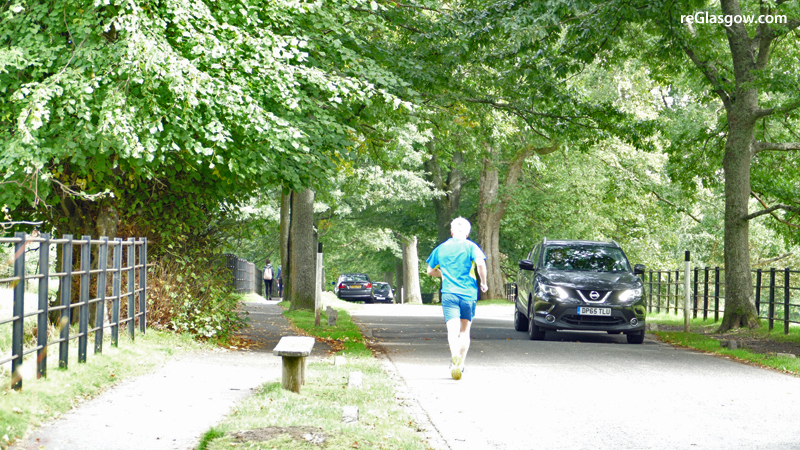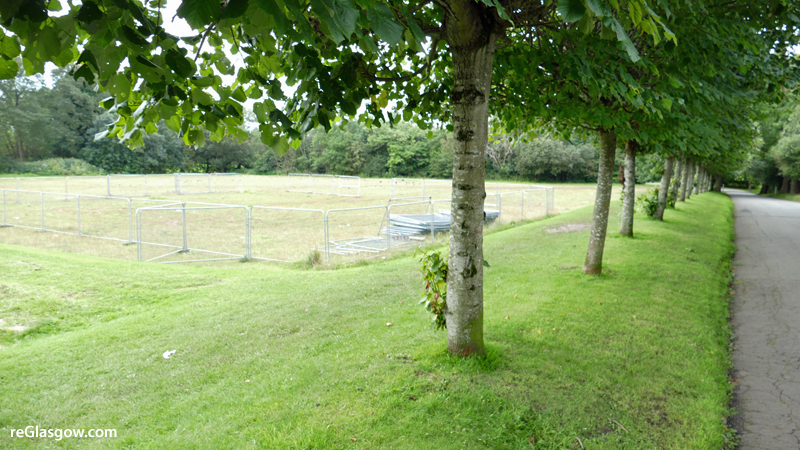PLANS have been drawn up for a £5.4million active travel overhaul of Glasgow’s largest park.
The proposals for Pollok Country Park will promote walking, cycling, bus and train travel and are to be delivered in time for the re-opening of the Burrell Collection in 2021.
A Glasgow City Council report submitted to the City Administration Committee for approval states: “A visitor survey carried out in 2016-2017 revealed that 71 per cent of all visits to Pollok Country Park were by private car, while nine per cent were made on foot and 13 per cent of journeys were made by bus or rail.
“The [proposed] interventions will support a shift to more sustainable transport choices, and will provide the infrastructure to support future investment and activity within Pollok Country Park.
“Whilst there is a particular forthcoming challenge presented by the expected increase in visitors to the refurbished Burrell Collection, the measures proposed have been designed to service the needs of all visitors to the park.”
Guiding principles behind the plan aim to:
● Make the park a navigable and enjoyable space.
● Remove barriers to access.
● Prioritise pedestrian and cyclist access.
● Prioritise access to Pollok Country Park via public transport.
● Reduce the number of vehicles passing through the park.
● Encourage visitors to leave their cars at home
The main measures are:
● A shared surface route at the existing Pollokshaws Road entrance and the creation of improved pedestrian and cycling routes leading to and from there to the Burrell Collection and Pollok House.
This entrance is adjacent to Pollokshaws West railway station and main bus routes and improvements will support the use of public transport by park users. Better lighting will be provided plus shelter and rest points, and physical changes to support level access.
General vehicle access will no longer be available at this entrance in order to give priority to pedestrians and cyclists and to limit the area of the park negatively affected by private vehicles. Controlled access will be provided for the allotments, tied properties and organisations based within the park.
● An improved vehicle entrance at Haggs Road (current entry point to Nether Pollok), next to the current exit. The existing exit-only road will be altered to allow two-way traffic between the improved entrance at Nether Pollok and the Burrell Collection.
The improved entrance and more direct route to the Burrell Collection will allow access for double decker buses and reduce the area of the park negatively affected by private vehicles.
● The creation of a new perimeter car park on the site of a disused blaes hockey pitch, pictured, adjacent to the new entrance. This will keep the majority of private vehicles on the edge of the park improving the amenity toward the centre.
There will be a 36 per cent reduction in car parking capacity when compared with the uncontrolled and widespread parking that currently characterises the park. Parking will be formalised and controlled throughout via an extension of charges intended to promote a shift away from private car use.
The the new car park’s design is intended to be flexible enough to allow a range of uses, including events, as progress is made towards a shift to active travel and sustainable transport.
● Infrastructure to support an in-park zero emission shuttle service that will provide a “last mile” solution encouraging visitors to use the transport links that bring visitors to the edge of the park.
● The creation of a separate, lit footpath between the Haggs Road exit/entrance area and the Burrell Collection (currently pedestrians share the surafce with exiting vehicles on this route).
● The introduction of electric vehicle charging stations at the Burrell Collection and at the new perimeter car park at Nether Pollok.
● The existing entry and exit north west route along Lochinch Road from Dumbreck Road / M77 junction to Pollok House and the Riverside car park will be kept. Private vehicles will not, however, be permitted to travel through the centre of the park.
Currently, there is a charge for parking in the Burrell Collection car park of £1 per day and all other car parking spaces are free.
The council report states: “At busy periods the car parks are full and visitors regularly park along the sides of access roads and on verges, impacting on the enjoyment of the park by visitors, and their ability to access it by active travel.”
The plan would contain all parking within designated spaces and introduce a charge across the park.
The proposed charge is £2.50 for four hours and £4.50 all day. Tariffs will apply 10am to 5pm daily, matching the opening hours of Pollok House and the Burrell Collection.
Outwith these times, charges would not apply and this would allow frequent users travelling by car to park for free in mornings and evenings when use of the park is reduced.
The number of spaces will fall from just under 1,500 to around 1,000. Uncontrolled verge/layby parking would be eliminated.
The report states: “Financial modelling has demonstrated that there is sufficient revenue from car parking tariffs to meet the associated costs of the development.
“In recognition of the dynamic nature of managing a visitor facility of this scale, and the emerging response citywide to the work of the Connectivity Commission and the Climate Change and Ecological Emergency Working Groups, it is recommended that there is a review as part of the Green Travel Plan, after two years and annually thereafter, of parking charges, parking numbers and the timetabling and ticketing of the shuttle bus, so that these arrangements might best support modal shift and the sustainability of Pollok Country Park.
“Any surplus funds generated will be set aside as funding for improvements and necessary maintenance of Pollok Country Park.”
It is intended that work will start in June 2020.
The council hope to attracted around £1.5million towards the cost from the Low Carbon Travel and Transport Fund, administered by Energy Saving Trust on behalf of Transport Scotland.




